Environmental Sciences Ph.D. (EVS) Current Students
Meet Our Current PhD Students
Meet our current students and read about their research below.
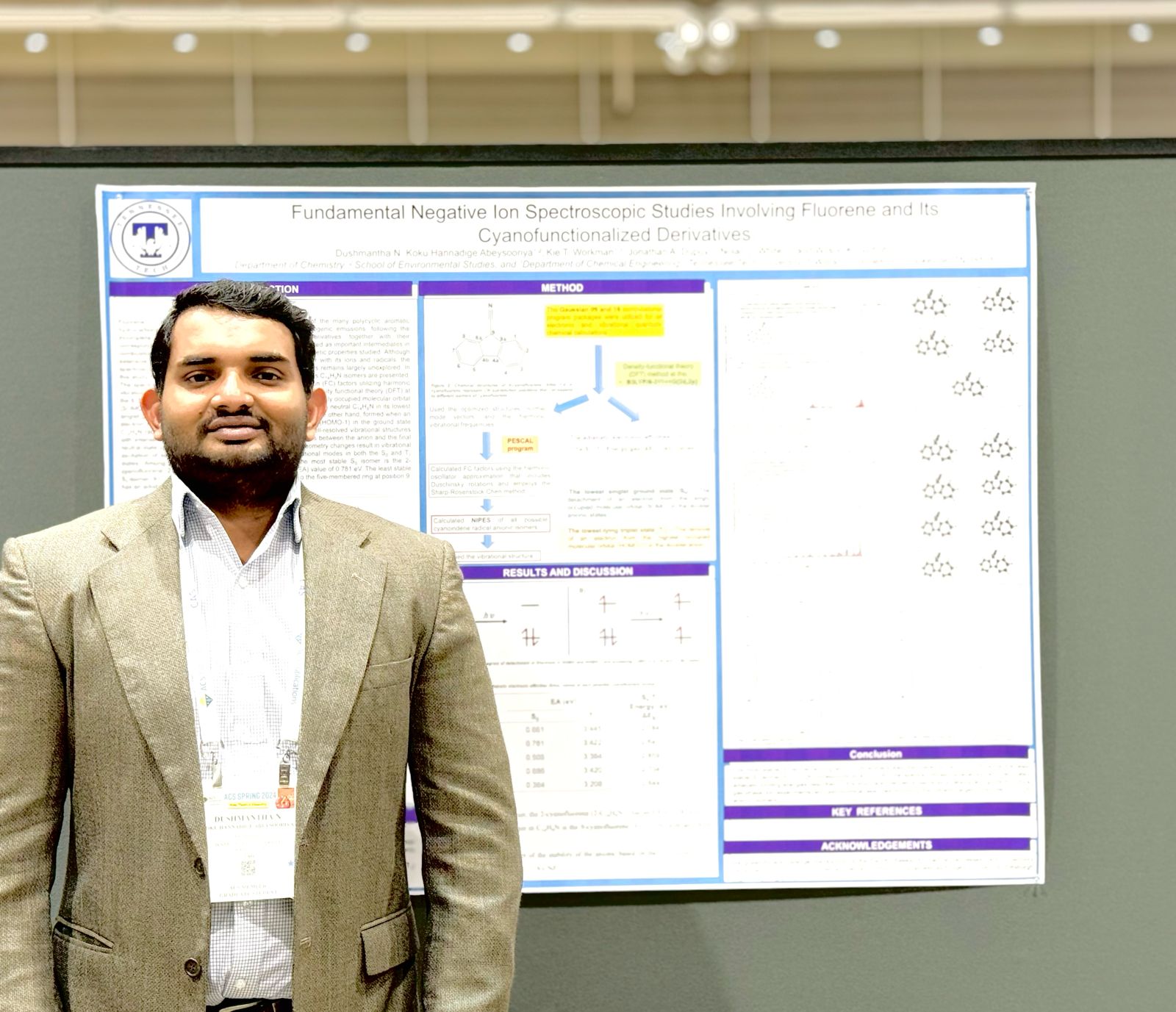 Namal Abeysooriya - Chemistry
Namal Abeysooriya - Chemistry
Namal is originally from Sri Lanka and an Erasmus Mundus Scholar Alumni. Before joining
Tennessee Tech, he studied and conducted research in France, Portugal, Spain, the
Netherlands, and Sri Lanka in the fields of environmental chemistry and toxicology.
His dissertation, titled "A Comprehensive Study of Environmental Contaminant Adsorption
onto Microplastics: Mechanisms and Environmental Implications," focuses on the field
of environmental chemistry. Specifically, his research examines the kinetics and isotherms
of organic contaminant adsorption onto microplastics, the concentration of these contaminants
in water bodies, and the toxicological interactions associated with the adsorption
process.
 Daniel Adams - Integrated Research
Daniel Adams - Integrated Research
Daniel’s research is titled: “Enhancing Building-Stock Data Attribution with Machine Learning and the Implications for Quantifying Uncertainty in Estimated Populations at Risk of Water Insecurity.” Daniel’s research focuses on advancing geospatial science and knowledge around building-stock attribution and its implications for quantifying uncertainty in deterministic human population models. Human population data are paramount for effective emergency response and urban planning strategies, particularly in coastal areas at risk of flooding and rising sea levels. The models used to create these vital population data, make use of assumptions for model inputs that at times fall short of accurately characterizing the human built environment. This can result in human population estimates that do not accurately capture a realistic number of people present in any given geography and can have adverse effects when used for emergency response or climate adaptation and mitigation strategies. Daniel seeks to quantify the uncertainty present in existing population data by utilizing data augmentation and machine learning methodologies to evaluate the veracity of the assumptions used in the deterministic modeling process. He aims to leverage the quantified uncertainty as an informative input for structured decision making in sea level rise impact assessments, thus improving planning and mitigation strategies for communities vulnerable to climate change impacts.
 Mary Olufunke Adepoju - Geology
Mary Olufunke Adepoju - Geology
Mary is currently conducting research in the Planetary Mapping Group, focusing on the application of advanced GIS and planetary remote sensing technologies. Her work aims to identify geologic resources and map geomorphic features on the Moon's South Pole, a region of interest due to its unique craters acting as cold traps, preserving fossil records of hydrogen, water ice, and volatile deposits. Her research utilizes high-resolution datasets returned from the Lunar Reconnaissance Orbiter launched in 2009. She makes geologic maps at scales ranging from 1:5,000 to 1:1M to determine the geologic history of the region.
 Mark Baldwin - Geosciences
Mark Baldwin - Geosciences
Mark earned his B.S. from Tennessee Tech and his M.S. from Western Kentucky University. He is currently a meteorologist for the Upper Cumberland area with his website and app, Meteorologist Mark. Mark's current dissertation work involves evaluating severe weather vulnerabilities to residents of Middle Tennessee. He occasionally gets to cover rocket launches for NASA through NASA social events and he loves every minute of them. Through the NASA events, Mark has been able to create Ad Astra, the first ever space camp for kids in Crossville.
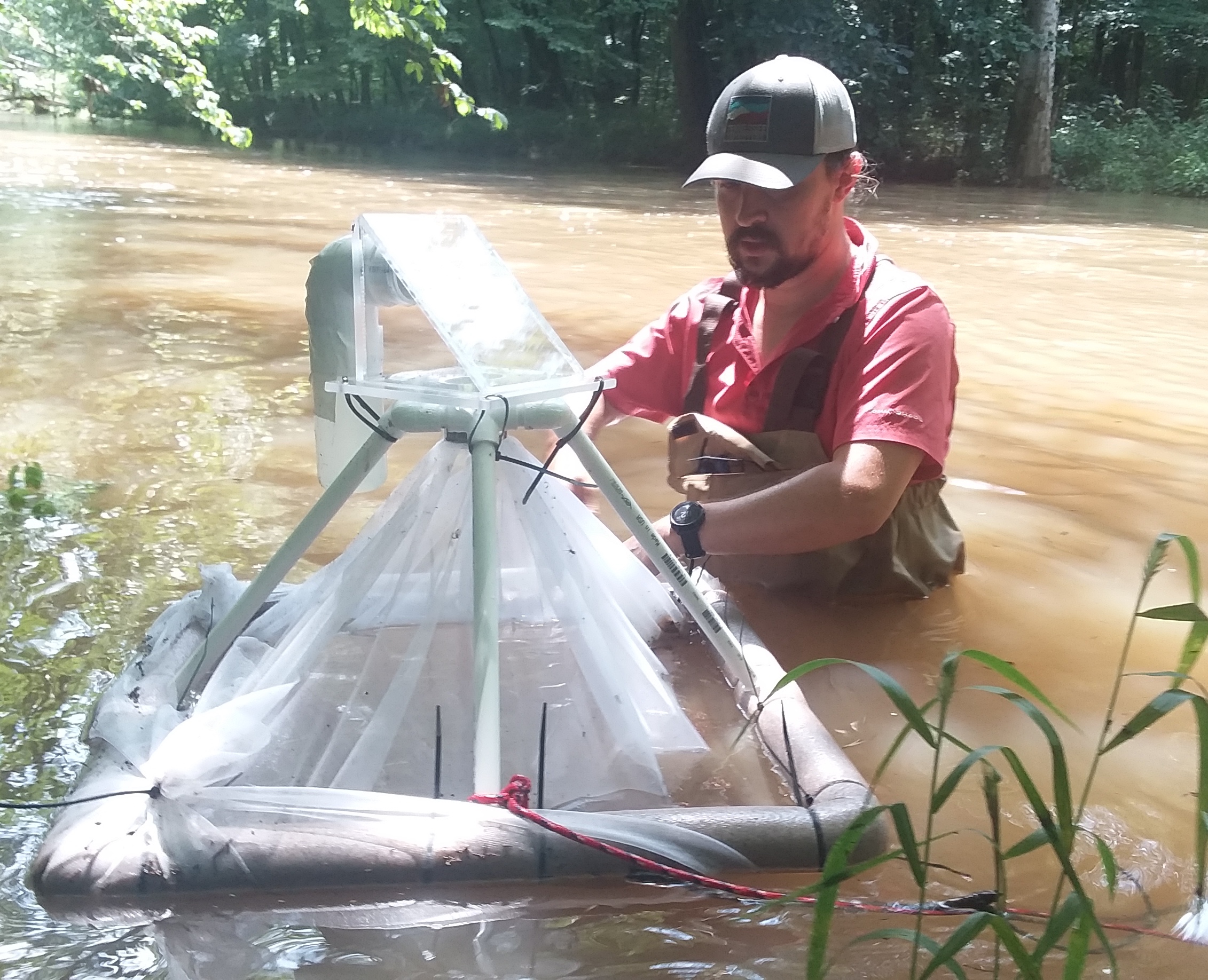 Peter Blum- Biology
Peter Blum- Biology
Peter's research is titled: "Transfer of PCBs from Emergent Insects to Terrestrial Consumers in Historically Contaminated Streams and Reservoir." His dissertation focuses on how stream insects that develop in polychlorinated biphenyls (PCBs) contaminated sediments can transfer PCBs to terrestrial consumers when they emerge as winged adults. Gray bats (Myotis grisescens) utilize emergent aquatic insects in their diet, which provides a route for PCB exposure and a potential concern for their conservation. Because PCBs are resistant to decomposition, historical contamination of PCBs at Wood’s Reservoir and several streams near Arnold Air Force Base may be sources of PCB exposure to local gray bat colonies. His research investigates how much insect biomass is emerging from these streams and reservoirs sites as a potential food source for bats, the PCB flux from these emergent aquatic insects, and how nutrient stoichiometry (the ratios of major nutrients in insects) affects PCB biomagnification.
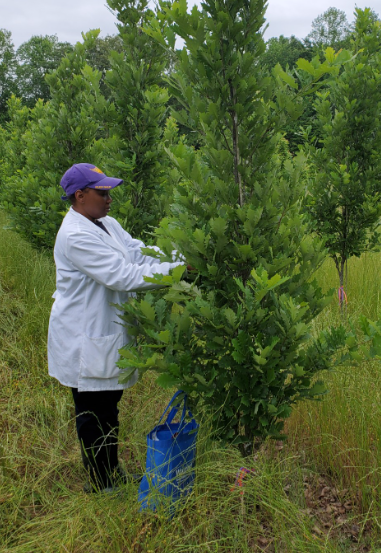 Martine Patiance Bowombe-Toko - Agriculture
Martine Patiance Bowombe-Toko - Agriculture
Martine is originally from Mbanga (Littoral region, Cameroon) and her research study focuses on preventing or controlling periodical cicada oviposition damage associated with nursery tree crops. Her dissertation is titled, "Determining control strategies for periodical cicadas in commercial ornamental nursery plants in Tennessee." To accomplish this goal, two major priorities will be addressed: 1) evaluation of new or current insecticide treatments to manage periodical cicada adults using cage studies in shadehouse settings and 2) assessment of nursery tree damage by periodical cicada adults (Brood X, 2021) in cooperating East Tennessee field nurseries. However, with limited nurseries located so far, they will include the insurance assessment reports from the 2011 emergence, to return in 2024, and from the 2008 emergence to return in 2025.
 Tong Chen - Biology
Tong Chen - Biology
He received both his Bachelor's and Master's degrees in aquaculture from Ocean University of China. His research employs genomic methods to determine the sex of blue catfish, focusing specifically on analyzing their gene expression levels. His interest in fish has been a consistent theme throughout his academic studies.

Bryant Davis- Integrated Research
Bryant's project is titled "Geochemical Fingerprinting of Natural Waters in Middle Tennessee." Geochemical fingerprinting is an analysis of the chemical species, present within natural waters, to determine both the source and alteration of these systems. These chemical fingerprints are defined as specific patterns of analytes unique to each body of water. This research examines the presence of metals in surface waters that are located on two distinct physiographic regions of Tennessee: the Highland Rim and the Cumberland Plateau. Water bodies from these regions were chosen due to differences in local geology and land use patterns that each respective system are subjected to. Grab samples were obtained from various locations in order to obtain an identity of each respective system. Linear regression was then utilized to determine ratios of analytes so that a comparative analysis could then be performed. The obtained correlation coefficients should indicate how local geology and land use patterns affect the chemical identity of natural waters within Middle Tennessee.
 Ronnie Dunn - Agriculture
Ronnie Dunn - Agriculture
Dissertation Title: “Optimizing and Modeling Nutrient Use in a Drip Hydroponic System for Tomato Production.” Ronnie’s research deals with the optimization of production methods for tomatoes in trough-based, drip hydroponic systems and with a biological model for transpiration that can be used in an app-based decision model to inform nutrient replenishment in closed and semi-closed hydroponic systems. Ultimately, this research could be helpful in the move toward tomato production in closed hydroponic systems and away from open systems that discharge used nutrient solution into the environment, producing negative environmental impacts for surface water and groundwater. Additionally, a more optimal use of nutrient solution by producers could increase producer profits.
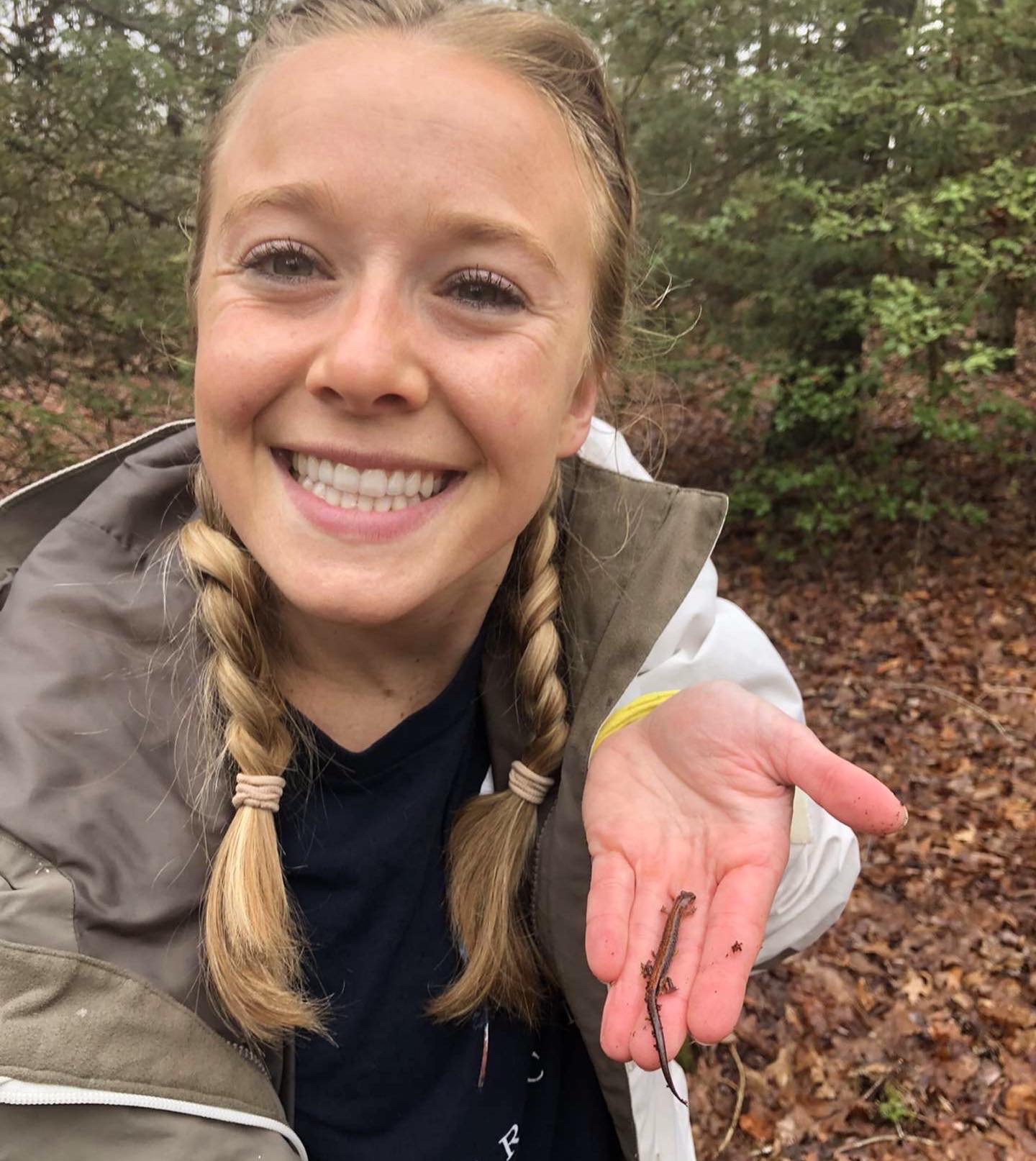 Miranda Gaupp - Biology
Miranda Gaupp - Biology
Miranda received her B.S. from Millsaps College and her M.S. from Georgia Southern University. For her dissertation, she is creating genomic resources for the streamside salamander (Ambystoma barbouri). Specifically, she is assembling and annotating a reference genome and the species' transcriptome. Additionally, Miranda is performing comparative gene expression analysis in order to investigate population-level differences in response to temperature.
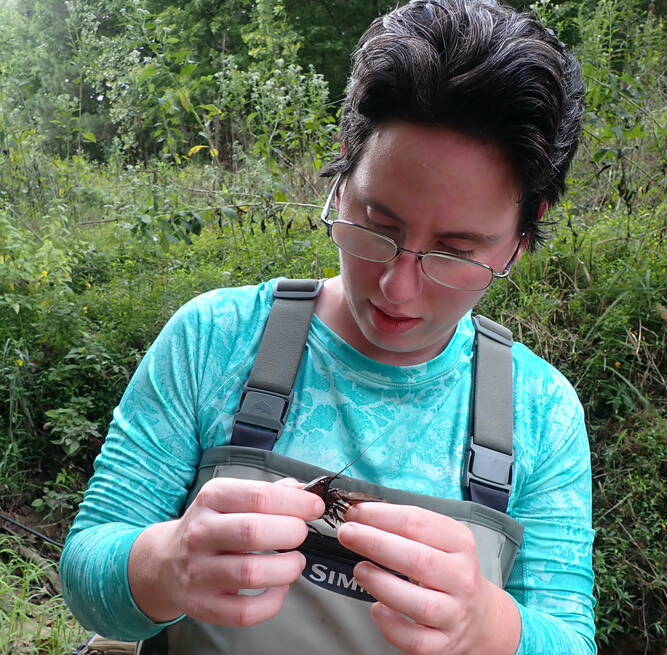 Brooke Grubb- Biology
Brooke Grubb- Biology
Dissertation title: "An interdisciplinary approach to understanding ecology and genetics of a narrow endemic crayfish species, Faxonius wrighti." Brooke is studying the taxonomic validity, habitat needs, conservation genetics, and movement of Faxonius wrighti (Hardin Crayfish). Her work will involve aspects of landscape ecology and genomics to understand how the environment influences crayfish movement, genetic structure, and generate predictive models under different climate change scenarios to highlight populations at increased risk of extirpation. Her research will aid in the generation of a species status assessment (SSA) used to make federal listing and management decisions.
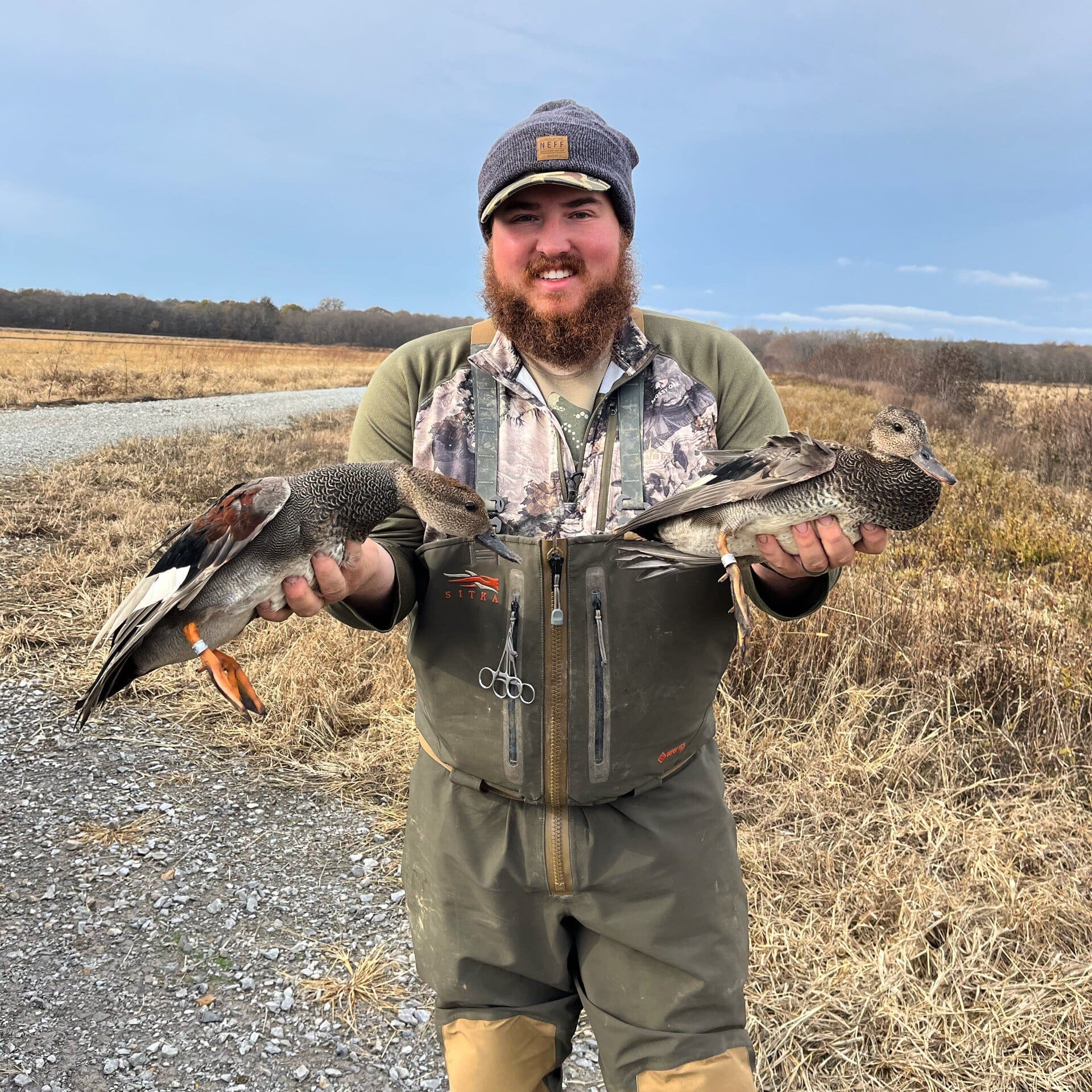 Cory Highway - Biology
Cory Highway - Biology
Dissertation title: "Optimizing wintering waterfowl distribution and hunter opportunities through strategic wetland design." Cory's research examines the impact of anthropogenic disturbance and predation risk on the habitat selection, activity patterns, and distribution of wintering waterfowl in western Tennessee. Specifically, Cory is exploring the strategic placement of rest areas devoid of predation risk to create a more ubiquitous distribution of wintering waterfowl across available habitats. This research also aims to increase harvest opportunities for waterfowl hunters through the reduction of recursive activity patterns in wintering waterfowl, thereby improving stakeholder satisfaction.
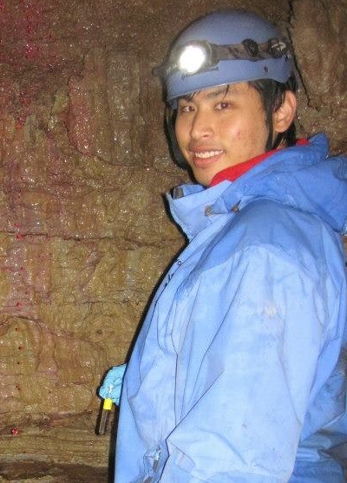 Wayman Ho - Integrated Research
Wayman Ho - Integrated Research
Wayman received a B.S. degree in Civil Engineering from Boise State University and an M.E. in Environmental Engineering from Tennessee State University. He is also a licensed professional engineer in Tennessee. Wayman aims to develop a holistic approach to addressing nutrient-related water quality issues in surface water. His research will utilize geospatial data, data analysis, machine learning, and water quality models to identify sensitive factors causing eutrophication and vulnerable areas. Long-term dissolved oxygen and algal responses due to nutrients will be evaluated. With this research, government agencies and stakeholders can utilize resources better to address water quality issues.
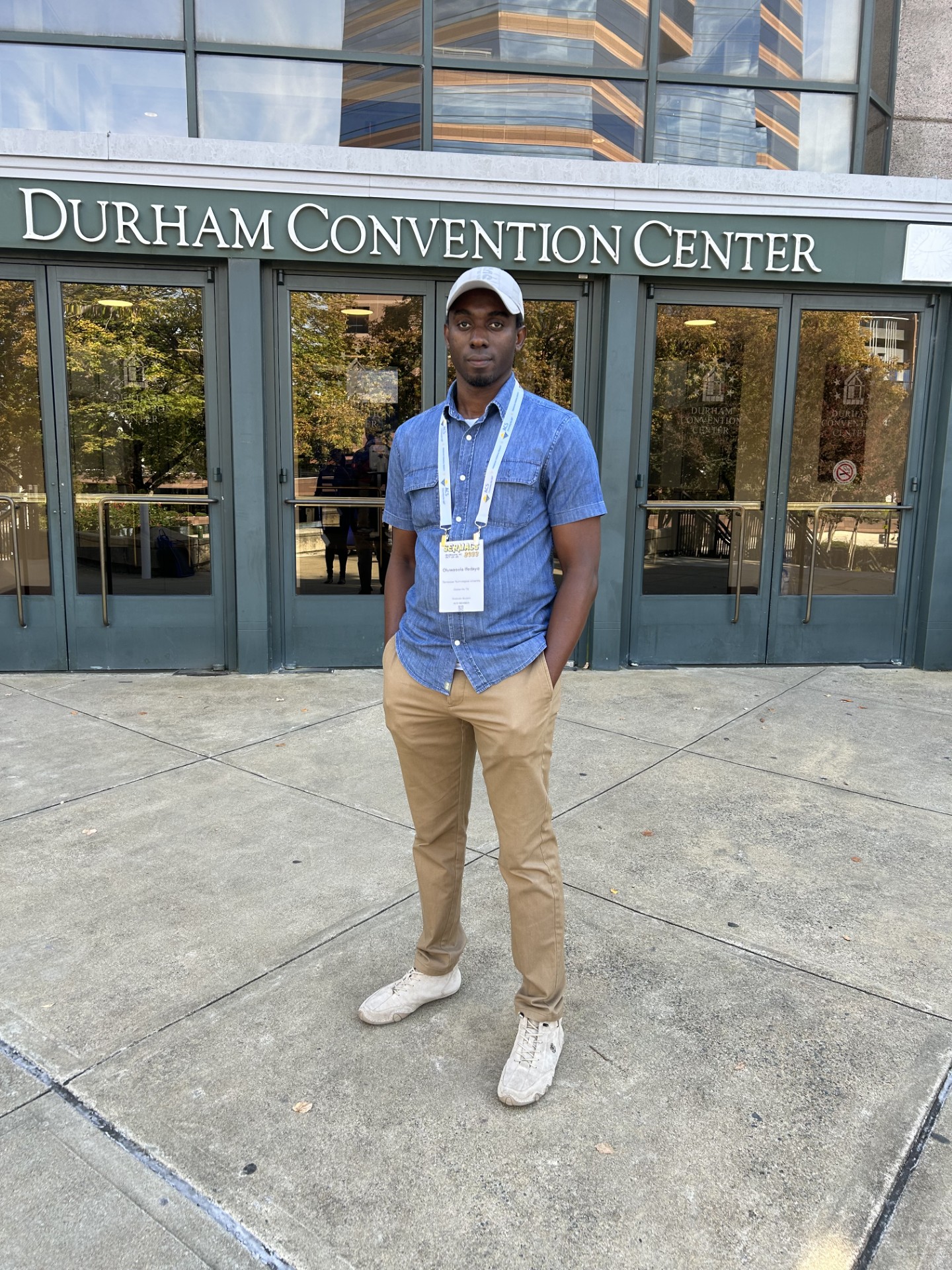 Oluwasola Ifedayo - Chemistry
Oluwasola Ifedayo - Chemistry
Oluwasola was born and raised in Lagos, Nigeria. He received his undergraduate degree in Nigeria and had 9 years relevant working experience. He received his masters in Chemistry at Tennessee Tech. Oluwasola is now a Ph.D. Environmental Science Ph.D. Chemistry Concentration student and a member of Dr. Tammy Boles’s lab. His research will be focusing on wastewater analysis to detect and quantify opioid contaminants.
 Thomas Miles - Biology
Thomas Miles - Biology
Tom received his B.S. from Mississippi State University and his master’s from Iowa State University. Tom is an avid outdoorsmen and enjoys tournament bass fishing and hunting in his free time. His dissertation work focuses on the impact of invasive Alabama Bass on Tennessee’s native black bass, with particular focus on native Smallmouth Bass. He will be performing a statewide analysis of Alabama Bass introgression with Smallmouth Bass and modelling the spread of Alabama Bass in Tennessee. His research will provide valuable information to managers who hope to mitigate the impact of Alabama Bass and protect Tennessee’s culturally and economically valuable native Smallmouth Bass.
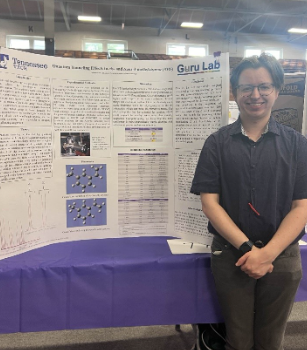 Cadence Miller - Chemistry
Cadence Miller - Chemistry
Cadence is originally from Leiper’s Fork Tennessee and has received their B.S. in Chemical Engineering and Chemistry from TN Tech. He is first year Ph.D. student working in the Gru Lab through the chemistry department. Their research primarily focuses on fundamental properties of molecules such as our soon to be published manuscript on the quantum tunneling in 3-methylstyrene using microwave spectroscopy. He is also interested in pursuing the identification of relevant molecules in the interstellar medium that can provide insight into the atmospheric chemistry on Earth.
Catherine "Kitty" Phillips - Integrated Research
The title of Kitty's dissertation is "Ethnobotany Among Cherokee and Chocktaw Women: Medical and Spiritual Uses." The basic premise of her research is to explore the plants and methods used by the Cherokee and Choctaw women to cure ills, to prevent illness, to heal wounds, and for overall health. She will explore which methods worked and why. In addition, she is researching the spiritual or ritualistic uses of plants in their culture. She also want to determine the overlap between the uses.
Richard Pirkle- Biology
Canada geese in the Upper Cumberland region of Tennessee have been intensively banded over the past two decades. Richard's research involves the analysis of this long-term dataset for patterns that explain Canada goose dispersal, reproduction, and molt site fidelity. In particular, he is interested in how stress may impact nesting physiology and influence social structure amongst unrelated Canada geese. He is also interested in the impact of increased hunting mortality due to banding.
 Zoë Porter - Biology
Zoë Porter - Biology
Zoë earned her B.S. at Oklahoma State University and her M.S. at University of West Florida. She is studying the mechanisms that produce trade-offs in ecosystem services in restored wetlands. Specifically, her dissertation will focus on assessing nutrient (nitrogen and phosphorus) retention and greenhouse gas (GHG) production tradeoffs to better understand the conditions that optimize flux rates in restored agricultural floodplain wetlands in West Tennessee.
 Md. Bayazid Rahman - Agriculture
Md. Bayazid Rahman - Agriculture
Md. Bayazid Rahman has a background in Information and Communication Technology, having earned his M.Sc. from Bangladesh University of Engineering and Technology (BUET). His Ph.D. research emphasizes the integration of geo-spatial technologies and artificial intelligence for precision agriculture, aiming to enhance agricultural productivity and sustainability.
Md. Bayazid’s research investigates the application of machine learning and computer vision to support precision agriculture. His work combines geo-spatial data with advanced AI techniques to refine and enhance precision agriculture practices. Through this research, Md. Bayazid aims to contribute to more sustainable agricultural systems that address the growing challenges in crop management and food security.
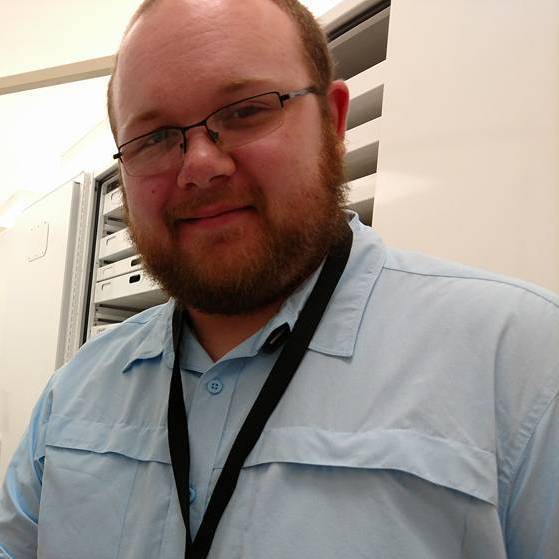 Phillip Roberson- Geosciences
Phillip Roberson- Geosciences
Phillip's research focuses on understanding ancient reef-like structures known as Waulsortian mounds. He will be examining the paleoecology, stratigraphy, and geochemistry of these mounds to better understand how and why they formed.
Sahar Salimi - Integrated Research
Sahar is a bioinformatician in the Rahnama Lab. Her primary research focus lies in studying the genome's evolution and structure of Fusarium species. She conducts in-depth analyses of the genomes of these organisms to gain insights into their genome rearrangement and how it has evolved. Sahar's work in this field is geared towards advancing our understanding of the genetic mechanisms underlying Fusarium species' evolution and pathogenicity.
 Khirujjaman Sumon - Chemistry
Khirujjaman Sumon - Chemistry
Sumon hails from Bangladesh, where he completed his bachelor's degree in Veterinary Medicine. Driven by a passion for environmental science, he later moved to Europe to pursue an Erasmus Mundus Joint Master’s Degree in Environmental Contamination and Toxicology (ECT Plus). During his master’s thesis, he was observing the effect of emerging contaminants in aquatic species that conducted at the University of the Basque Country in Spain, which laid a strong foundation for his future research endeavors. Currently, he is pursuing his PhD under the guidance of Professor Kristen Johnson. Sumon’s research focuses on exploring the role of non-exhaust emissions (NEE) in cloud formation and their potential adverse effects on the environment. To achieve this, he is employing various advanced analytical chemistry techniques, including FT-IR Spectroscopy, Liquid Chromatography Mass Spectrometry (LCMS), and Inductively Coupled Plasma Mass Spectrometry (ICP-MS).
 David Sutton - Integrated Research
David Sutton - Integrated Research
David's goal is to study efficient and optimal methodology to transport solid wastes and recyclables from county to destination in Tennessee. The proposed methods used in this study may include geospatial analysis, python data analysis, machine learning model building, and prediction based on various scenarios. Factors such as, but not limited to, climate change, population migration, socioeconomic index, groundwater quality in landfills, landfill capacity and life span, and recycling technology, will be used in the modeling process to optimize best management plans for future use.
 Christopher Waters- Biology
Christopher Waters- Biology
Chris's research is titled, "Metabarcoding environmental DNA to examine pollinator communities across the range of Physaria globosa (Brassicaceae).” and is part of the recovery and conservation efforts for a federally endangered mustard species called Short’s bladderpod (Physaria globosa(Desv.) O'Kane and Al-Shehbaz). The primary goal of Chirs's research is to investigate and monitor pollinator communities across the range of Short’s bladderpod via metabarcoding environmental DNA (eDNA) on flowers. As insects visit flowers they can leave behind small fragments of DNA in saliva or shed hairs that can be extracted from the flowers and identified to species or taxonomic group. This method allows us to identify and monitor the pollinator community composition across the range of Short’s bladderpod more efficiently compared to traditional sampling techniques.
Follow SOES on social media!


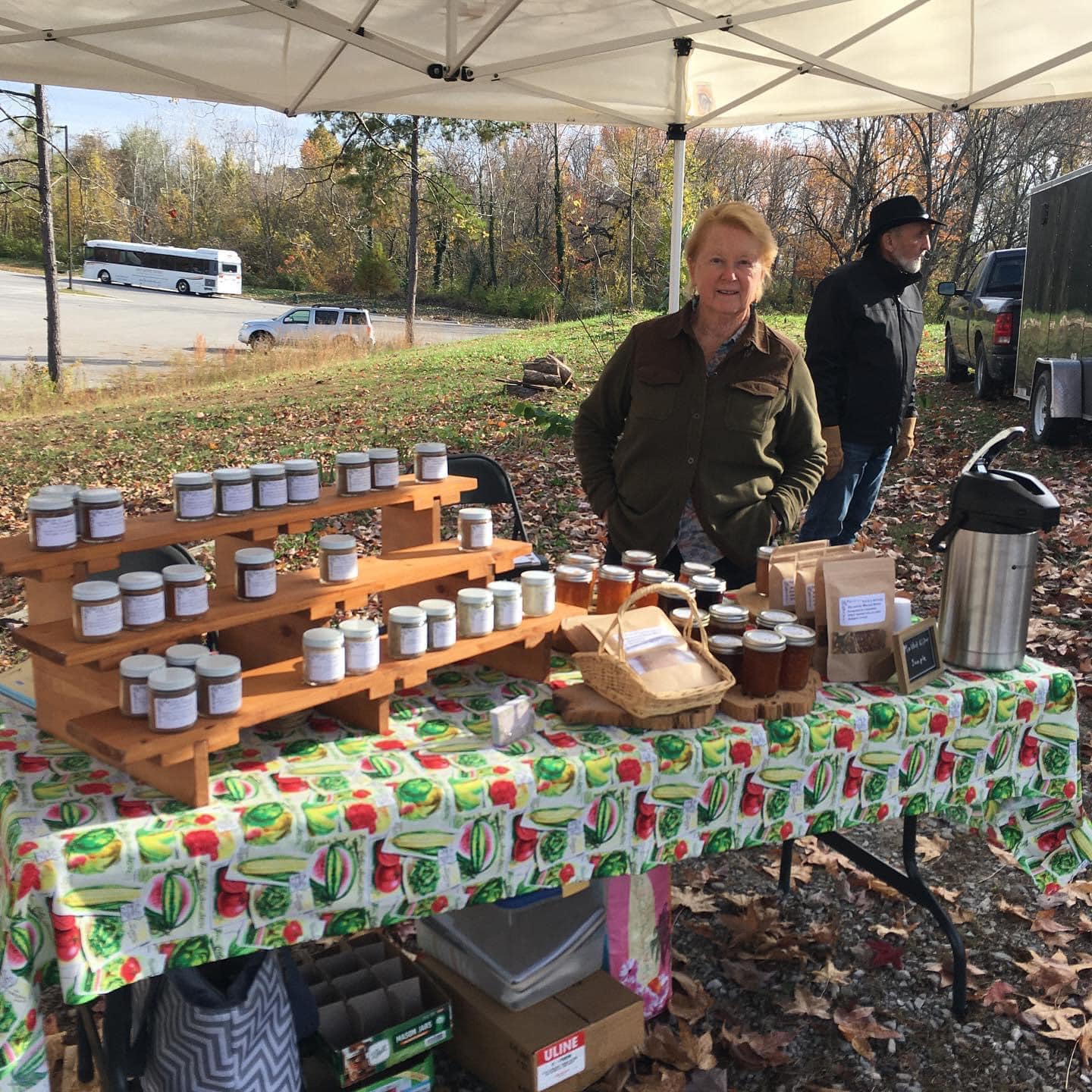
 SCHEDULE A VISIT
SCHEDULE A VISIT